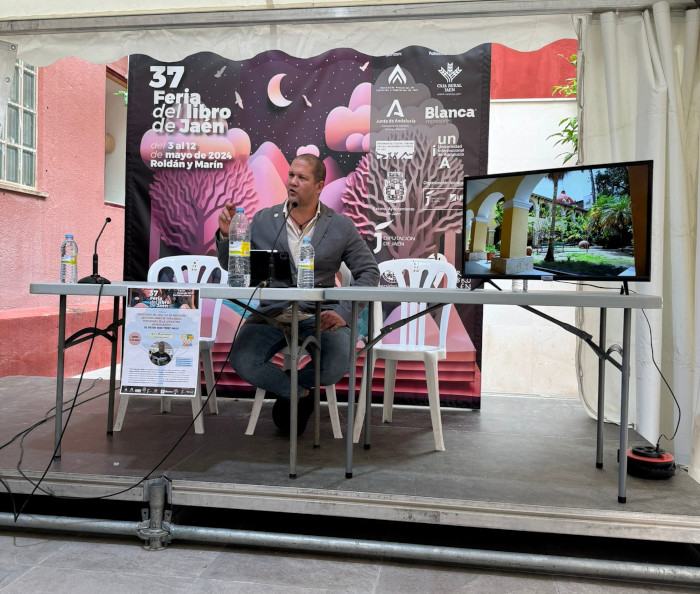CAMAGÜEY.- The writer and researcher Víctor Hugo Pérez Gallo participates for the first time in the Jaén Book Fair, Spain. He tells us that the city is beautiful and that its inhabitants are “like the people of Camagüey, very educated people.”
Invited by the University of Jaén, he gave a conference on Andalusian women writers of the 19th century. He emphasized Gertrudis Gómez de Avellaneda, and how she brought together Cuban, Spanish, and Sevillian literature.
“The main conflict of discussion was whether Gertrudis Gómez considered herself a Spanish or Cuban writer,” this author, who signs as Solo Víctor Hache, told Adelante.
Gertrudis Gómez de Avellaneda is one of the symbols of the city of Camagüey, where she was born on March 23rd, 1814 with the light that contemporaries and Cubans closer to our time failed to appreciate.
Her pseudonym La Peregrina portrays the heartbreak of the talented writer, those who did not know her Cuban identity tried to tarnish her work. She died in Madrid on February 1st, 1873.
The conference “Women writers of the 19th century in Andalusia: Gertrudis Gómez de Avellaneda, precursor of anti-slavery literature” was highlighted as an opportunity to explore the female voices that managed to make their way into the field of letters; although most are unknown.
During the 19th century, explains Víctor Hugo, Andalusia witnessed the flowering of a generation of women authors who, despite the social and cultural barriers they faced daily, dared to take up the pen and capture their stories, their vision of the world and their demands.
Gertrudis Gómez de Avellaneda stood out among them and became one of the most representative voices of this period, with a challenging narrative against the gender stereotypes of the time and the forging of a tradition in force today.
His female characters, the speaker insists, embodied the fight for emancipation and the vindication of one's own voice, and with fervent prose and passionate poetry that stood as a banner of the sensitivity and talent of Andalusian writers, who opened new paths for generations to come.

Víctor Hugo's reflections also led to tribute to other authors of the time, such as Fernán Caballero, (Cecilia Böhl de Faber) and Concepción Gimeno de Flaquer, who with their literary legacy shaped a rich and diverse female creative panorama in Andalusia.
Historical research for Victor Hugo has been essential in forging his own space in the Spanish academic field, and in the writing of dark fantasy or grimdark novels. He has shared his findings and insights at the Barcelona and Madrid Book Fairs.
In 2023 he offered a conference on historical novels in Cuba. He then undertook a historical essay project on the personalities of Zaragoza present in Camagüey in the 19th century such as Ramón y Cajal; and a historical novel trilogy.
Víctor Hugo Pérez Gallo (Nuevitas, 1979) is a Doctor in Sociological Sciences, narrator and essayist. He is a professor at the National University of Distance Education (UNED).
He is also a Guest Professor at the University of Santiago de Compostela and the University of Zaragoza; and teaches the Experimental Creative Writing Course “The Writer's Chisel.”

He has been invited to give talks on Latin American literature at the Casa de las Américas in Lisbon. The Ibercaja Foundation of Zaragoza has invited him to teach the Masterclass "Historical novel, grimdark and the Belchite Brotherhood" in 2023 as the beginning of the "An Aragón novel" cycle.
He deserves several national awards in Cuba and is taken into account in anthologies of erotic and fantastic stories. He published the book of short stories, La Eternidad y el Peligro de Morir, the uchronic novel Los Endemoniados de Yaguaramas, and La Escrito Demencial (Editorial Egarbook, 2017).
Literary criticism finds in Victor Hugo a reinvention of magical realism and dares further to identify in his writing the birth of Caribbean neo-surrealism.
Translated by Linet Acuña Quilez

